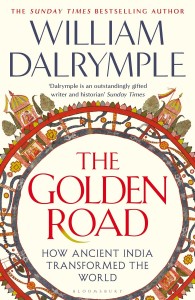These lectures are offered by the Faculty of Philosophy, rather than the OCBS. We are sure that many of our visitors will be interested in them:
Course: Buddhist Philosophy
Lecturer: Rafal K Stepien
Time: Hilary Term 2017, Fridays 2-3pm (except 2nd Week: 10-11am)
Place: Radcliffe Humanities Lecture Room, Faculty of Philosophy, Woodstock Road
This series of lectures constitutes a thematic introduction to Buddhist philosophy. It explores major topics in Buddhist ontology, epistemology, philosophy of logic and language, philosophy of mind, ethics, and other fields. While arranged thematically, the course also serves as an introduction to the history of Buddhist philosophy, in that each lecture singles out certain prominent thinkers or movements to illustrate the problematic at hand. This approach allows classical Buddhist philosophers to be studied who represent all the major schools of Buddhist thought from India, Tibet, China, and Japan. In addition to reading relevant primary sources in translation, students are encouraged to read secondary scholarship selected so as to help guide them through the seriously mind-altering ideas encountered in the Buddhist philosophical world. The course also proposes ways in which Buddhist thought can contribute to Western philosophical issues and, conversely, how intellectual paradigms prevalent in the West can be used to understand Buddhist philosophy. Students interested in broadening their mind beyond the confines of Western philosophy should find this course rewarding. The foreseen order of topics is as follows:
1st Week: Buddhism as Philosophy
Surveys the history of Buddhist philosophy, introduces the core philosophical tenets shared across traditions, and provides a rationale for studying Buddhist philosophy as philosophy.
2nd Week: Causation, Interdependence, and Impermanence
Addresses the metaphysical underpinnings of the Buddhist worldview. (Note different time: 10-11am).
3rd Week: Ontology
Explores Buddhist anti-foundationalist ontologies of emptiness.
4th Week: Selfhood & Personhood
Draws on the Buddha’s arguments for the ultimate non-existence of a substantial self to explicate the conventional operation of personal action.
5th Week: Epistemology
Addresses the nature of knowledge and examines the validity of perception and inference as means of its acquisition.
6th Week: Philosophy of Mind
Addresses cognition and self-cognition in the light of idealist and phenomenological accounts of mind.
7th Week: Philosophy of Logic & Language
Focuses on Buddhist formulations of non-classical logics and the linguistic expression of concepts.
8th Week: Ethics
Addresses normative ethics and their application to contemporary social issues.
All are welcome.


